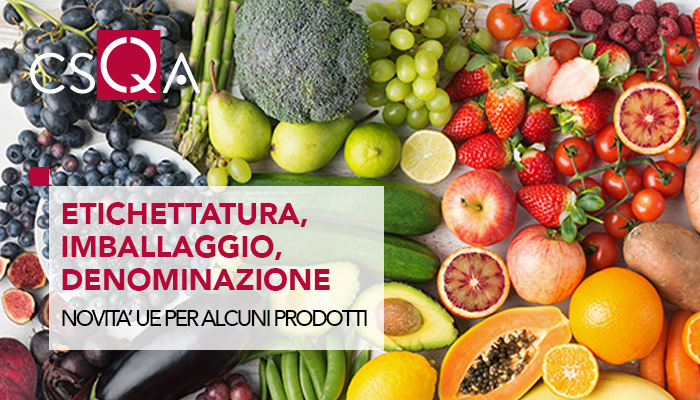
New rules in sight for some food products. Last April, the European Commission proposed to review the rules governing the marketing of fruit, vegetables, juices, jams, poultry and eggs , with the aim of helping consumers make better-informed choices, eat healthier diets and avoid waste. The new rules will concern aspects ranging from labelling, to packaging, up to product denominations.
Among the Commission's projects is that of establishing clearer and mandatory rules for the labeling of origin of honey, nuts, dried fruit, ripe bananas and trimmed, processed and cut fruit and vegetables (such as bagged salads and fruit salads).
For these products, in the case of blends of ingredients, all the countries of origin must appear on the label , to ensure greater transparency towards consumers.
Among the choices proposed by the Commission:
For these products, in the case of blends of ingredients, all the countries of origin must appear on the label , to ensure greater transparency towards consumers.
Among the choices proposed by the Commission:
- origin labeling - clearer and mandatory rules for honey, nuts and dried fruit, ripe bananas, as well as trimmed, processed and cut fruit and vegetables (such as packaged salad leaves). In the case of blends , the countries of origin must be indicated on the label . Listing the countries of origin will increase transparency for consumers as well as promote the production of these products in the EU;
- food waste - the proposed revisions cover both food and packaging waste. For example, less attractive fruit and vegetables (with external defects, but still suitable for local/direct consumption) sold locally and directly from producers to consumers are subject to a derogation from the marketing standards. Valuing their freshness could offer consumers more opportunities to buy fresh fruit and vegetables at more affordable prices and benefit producers active in short supply chains. The same applies to some products affected by natural disasters or other exceptional circumstances, if their consumption is safe;
- packaging - products intended for donation may be exempt from key labeling requirements. This will reduce bureaucratic obligations and labeling requirements, facilitating the work of operators;
- fruit juices - may bear the mention "no added sugar" to clarify that, unlike fruit nectars, juices cannot by definition contain added sugars, a characteristic of which most consumers are unaware. Furthermore, to respond to the growing demand for products with less sugar, a reformulated juice could indicate "reduced sugar fruit juice" on the label. To further simplify and adapt to consumer tastes, the term "coconut water" could be used alongside "coconut juice";
- jams and marmalades - the fruit content will be increased from a minimum of 350 to 450 grams (550 for high quality products) per kilogram of finished product. With the generalized increase in the fruit content, consumers would be offered a product with less free sugar and a higher quantity of fruit than at present. The term "marmalade", until now authorized only for citrus jams, would apply to all jams, in order to adapt the name of the product to the one most used locally;
- eggs - solar panels could be introduced in open-air production systems to stimulate the supply of energy from renewable sources. Egg stamping would also be done directly on the farm to improve traceability.